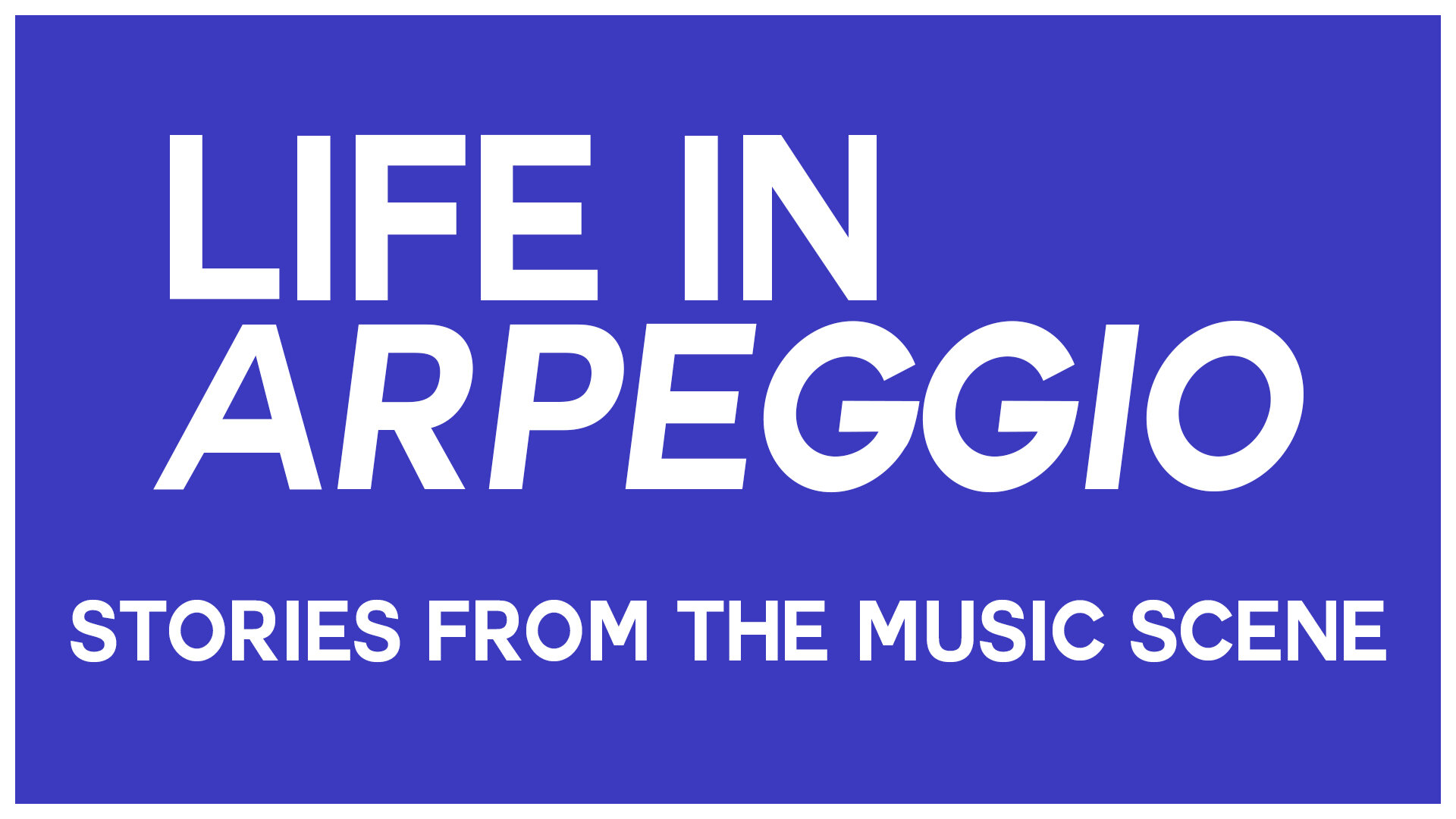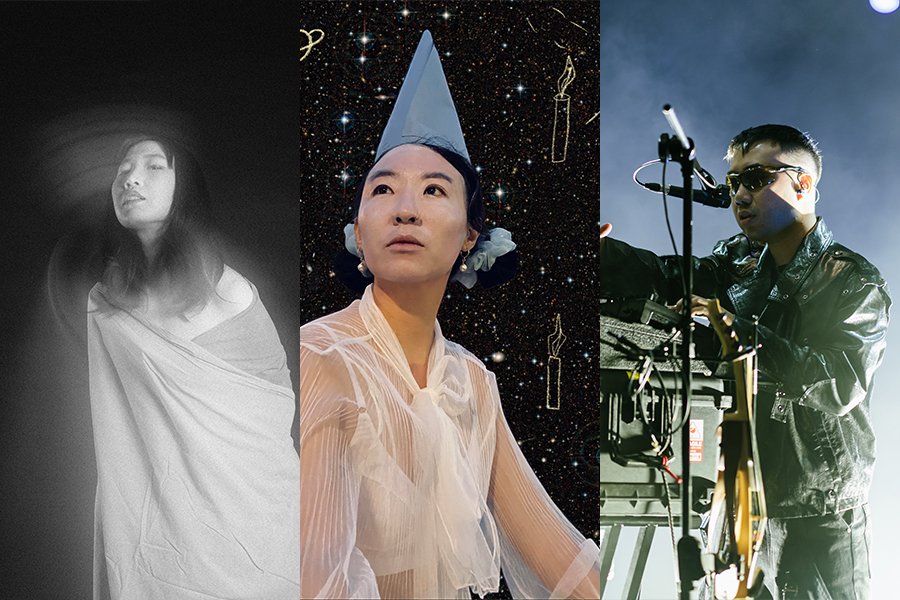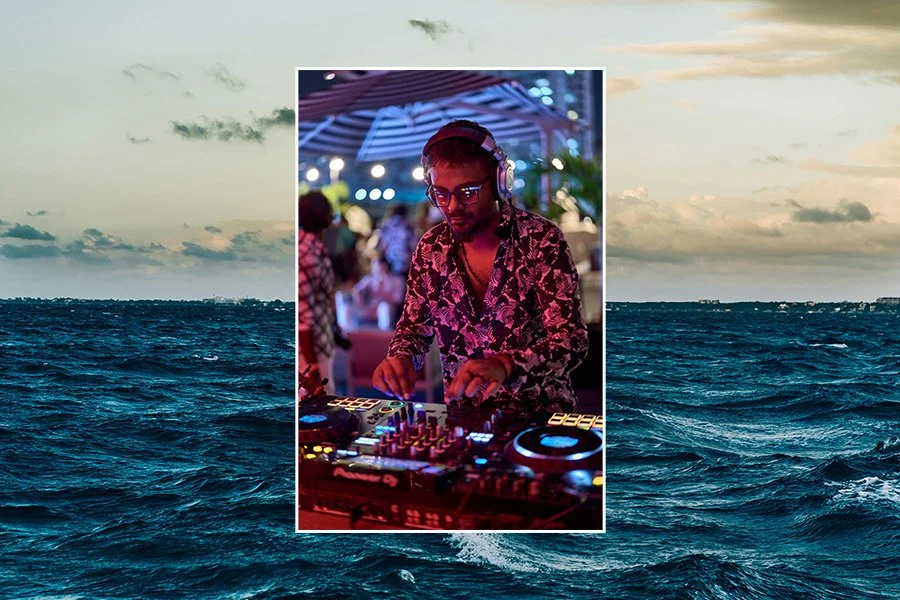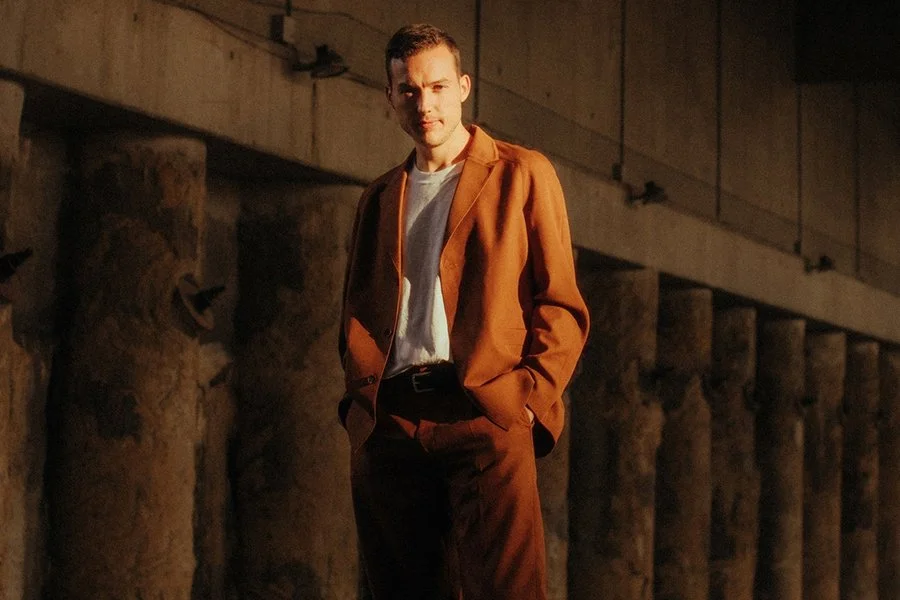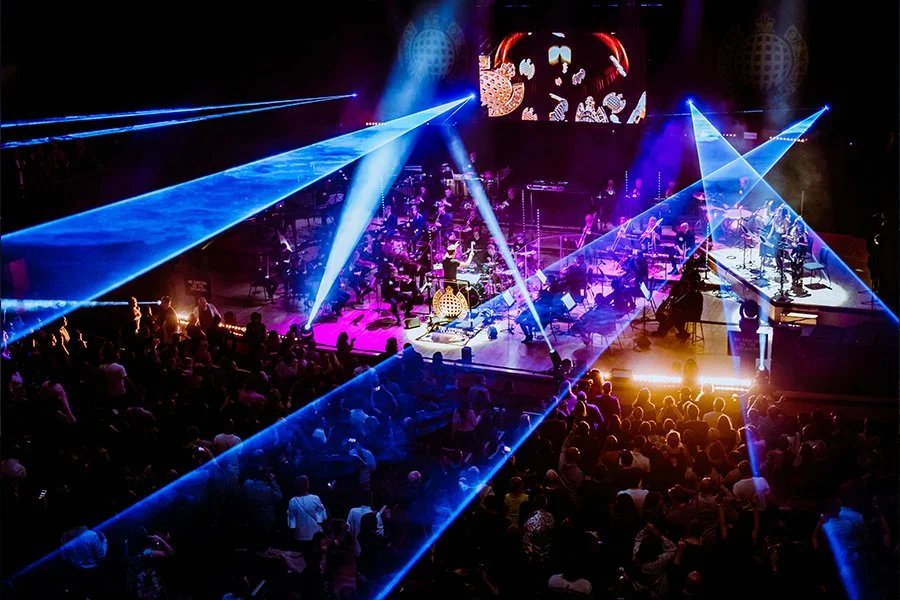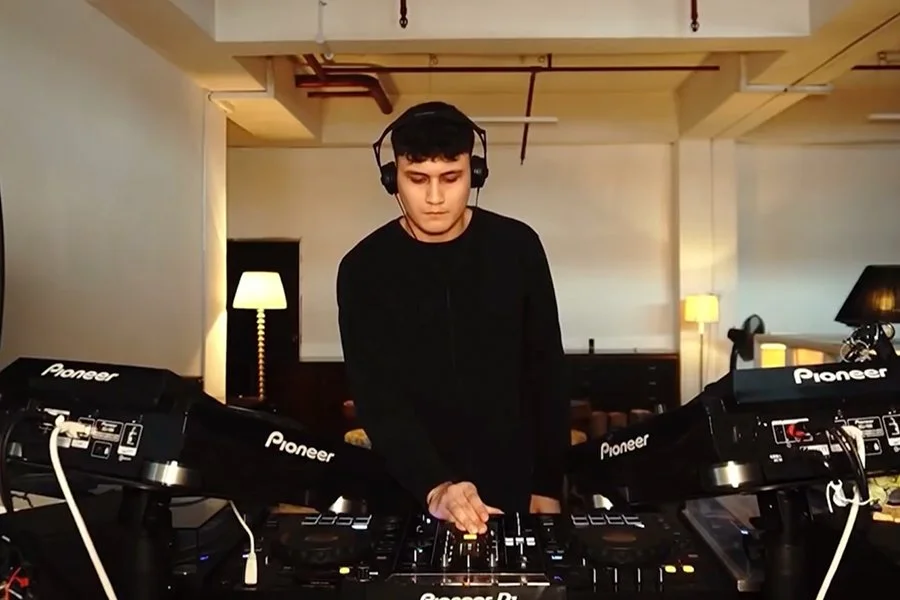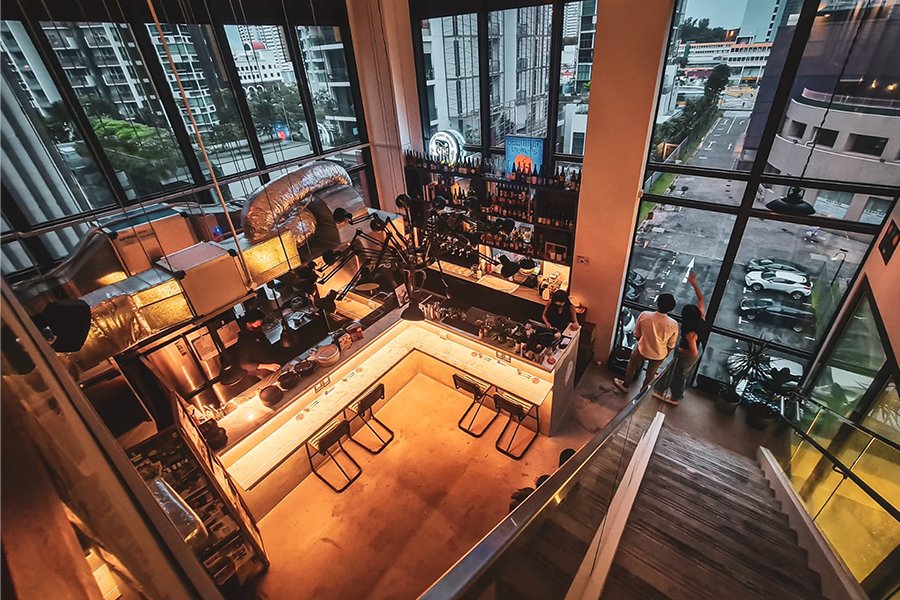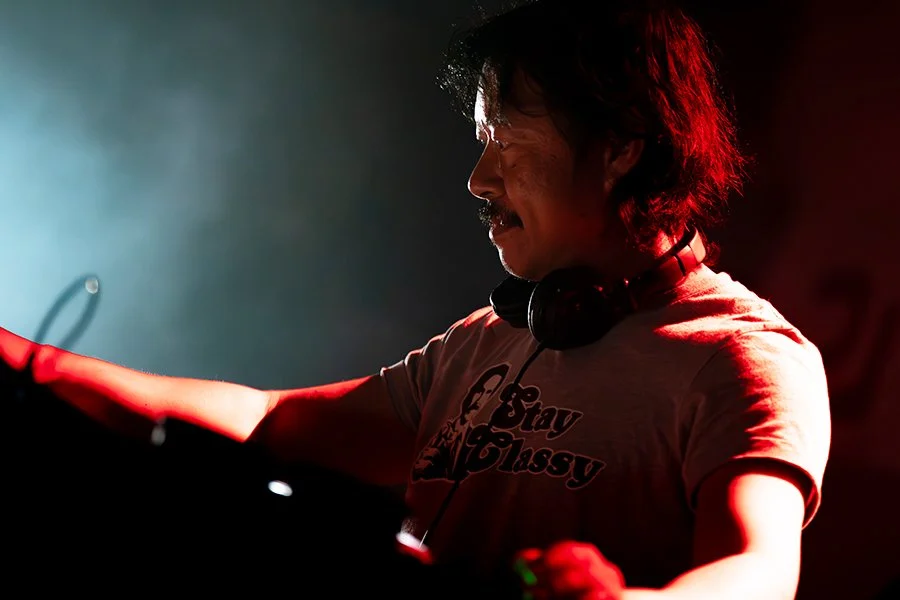The Freedom Of Collaboration: Why DSML Doesn’t Want To Be Bogged Down By Genres
Anything goes for the production tendencies of DSML (Credit: Courtesy of DSML)
Genre classification can be a boon for new acts, becoming an instant identifier that wins them nods from respective sub-communities. Yet for others, they avoid the genre game consciously, staying away from the pigeonhole conundrum that has the potential to backfire. David Siow, otherwise known as DSML, has opted for the riskier latter approach in his productions. With free rein, he’s adopted a route that is less self-centric in building an idiosyncratic sound, and has instead applied his acumen to enhancing the songs of guest musicians. Collaboration is the core of DSML’s output, and that’s what makes him whimsically unpredictable.
There have been attempts by David to label his sound as DSML, but it’s hardly a category in the traditional sense. “Dark-pop” is the term he’s loosely attached to his craft, but its description stems more from the morose origins of the DSML project, one that arose from a gruelling battle with mental health. The music, on the other hand, has been a lasso that’s pulled him out of the abyss in different directions.
You can detect this in the crude, bilingual feminist anthem, “Puxi Canal” with GIN.GIRL, where he fuses Chinese erhu samples with hip-hop beats. There’s the chillingly mellow “58” with Jean Seizure, which complements the singer-songwriter with a web of downtempo soultronica. With newcomer, JENE, he bashed out an uncharacteristically aggressive trap banger on “buttercup”. And then you have his more ebullient moments, spotted on the radiant funk-pop sheen of “Lesson Learnt” with Sarah X. Miracle. Local collaborators aside, DSML has also expanded his portfolio across the region, with production duties for bands like Malaysia’s Son of A Policeman and Indonesia’s lightcraft.
David has always had a lot on his plate as a devoted member of the industry (Credit: Courtesy of DSML)
David’s regional ties and his desire to aid others through music come as no surprise once you consider his background. Indie fans of the Singaporean scene would definitely recognise him as the long-time bassist of hip outfit, M1LDL1FE; you can hear his affection for basslines come through in his productions. But even deeper, David played an essential role as the president for The Music Society, Singapore (SGMUSO) for over three years. Under his leadership, the steadfast organisation would go on to run festivals, mentorships and music export programmes, helping countless musicians in the industry. It is perhaps this altruistic spirit that’s flowed into his ongoings as DSML. Just like how music got him out of a dark spot, he’s now using it to help convey the emotions of others – going wherever it may take him.
Coming from a place of immense honesty, David shares the inner thoughts behind his DSML project, and explains that there’s nothing wrong with seeking a little help.
“I hope that, in my music, I can get listeners to embrace their darker feelings.” (Credit: Courtesy of DSML)
Hey David, hope you’ve been well. How would you say you’ve fared since embarking on this journey as DSML? Has it been a process of growth and self-betterment?
Couldn’t have put it better myself. My own music has always been a tool for expression and healing for me, and a way of connecting with people. Of course therapy has helped too; can’t deny its impact. So let’s all go for therapy please.
The term “dark-pop” has been used to describe your sound. What does this entail exactly?
Oftentimes I see people ignore and denounce certain feelings. In my experience, there is merit to embracing them, akin to letting it all out and crying till your tears run dry. There had been times when I shut myself away from the world for days on end, not leaving my studio, just to dive deep into the dark abyss, and I hope that, in my music, I can get listeners to embrace their darker feelings.
From brooding electronica to sample-driven hip-hop, it’s safe to say that you don’t stick to any one sound. Why do you prefer to explore this diversity as opposed to being more focused in musical direction?
My own personal stance is that artistes shouldn’t feel bogged down by genres, especially if they feel compelled to explore. What matters to me more is whether or not there is any emotion evoked by the music. Also, because I work on a collaborative basis, I have to integrate their chosen musical direction. Hence, the diversification.
Another clear characteristic is that you’re driven by the prospect of collaboration, having teamed up with both guest vocalists and bands. Do you filter the collaborators you choose?
Initially I only collaborated with friends I felt comfortable with, but as COVID took over our lives and restricted recordings, I started to open up to basically anyone, as long as they welcome having some darkness in their music. Don’t even have to meet in person, as long as we vibe!
Collaboration is key to the workflow of DSML (Credit: Courtesy of YEO)
Partnering with a guest act is always an exercise of compromise and adaptation. How do you usually approach a project when there’s another cook in the kitchen?
I like that analogy. If I were to reuse that, I usually make the sofrito and stock first, then get some prompters as to what preferences and allergies they have, then prepare my interpretation of the dish, repeat previous step, and garnish at the end. As much as possible, I try to explain the choices I make in my production, so that my co-chef understands and is part of the conversation.
Have you considered coming up with solo compositions? What type of sound would you think you’d explore if you were completely left to your own devices?
Oh man when I first started producing music myself I was going through mad depression because of my divorce, so the material I came up with was super dark and evil-sounding. Mostly written with my day-one artiste, RON, some of those themes revolved around self-doubt, abandonment and betrayal. Kind of a good thing I didn’t release them as they were really too dark, but I might drop those tracks somewhere down the road. It’s like dark chocolate – 90% cocoa might be too much for most people.
“One thing I found useful was to detach myself from my musical ideas.” (Credit: Courtesy of DSML)
What is your usual production process and what comes first – the beat, the bassline, the samples or a core motif perhaps?
Being a bass player first, I like to tackle the low-end first – heavy beats and basslines. That being said, I do get inspired by samples quite a fair bit, then put my music theory to good use by cutting up and transposing them in a musical manner.
Experimenting with different sounds must always keep you on your toes. How do you stay fresh with ideas and explore new sonic elements?
For me that’s pretty exciting actually; it’s kinda like exercise for my right brain. One thing I found useful was to detach myself from my musical ideas – in feeling no ownership over the ideas, I can just discard them and come up with new ones, as ultimately, what serves the song dictates which ideas are chosen.
David seen here with his M1LDL1FE bandmates (Credit: Jasper Tan)
It’s no secret that you’re a core member of M1LDL1FE. How has it been juggling your solo project with the high-status nature of the band?
Those commitments kind of work in tandem – where the M1LDL1FE sound stays in an indie-pop or indie-rock niche, I’m free to roam as DSML. Where the boys focus on being a strong live act, as DSML I don’t need to care about performances as much. They also don’t collaborate as much, but as DSML I’m free to do so.
You were also heading SGMUSO for over three years, doing great things for the local music scene. What significant lessons did you take away from that experience?
Probably more of a mentality and direction on how I can contribute to the scene. After all the programmes, I’ve seen the massive potential and quality of our Singaporean artistes; they just lack infrastructure and the market to find sustainability or success. That’s made me dedicate myself towards music export, where I mobilise my network to give opportunities to these artistes.
With that role, coupled with all your projects in the scene, do you think you have a firmer understanding of how the local scene operates and what it needs to fully flourish?
Defo. After my time in SGMUSO, one of the most useful things I did was to identify the gaps within the industry and try and do my part to attempt to fill those gaps. In fact, one reason why my producer career started was because I felt compelled to fill a gap by serving emerging musicians who could not do/had no access to music production – the folks who could write great songs but could only play guitar or keys.
To end off, will you ever release a solo EP under DSML?
For now, probably a release at a time, until I decide to release the whole chunk of super dark material I came up with at the start of this journey. The world might end in 2022, so who knows?
(Credit: Courtesy of DSML)
